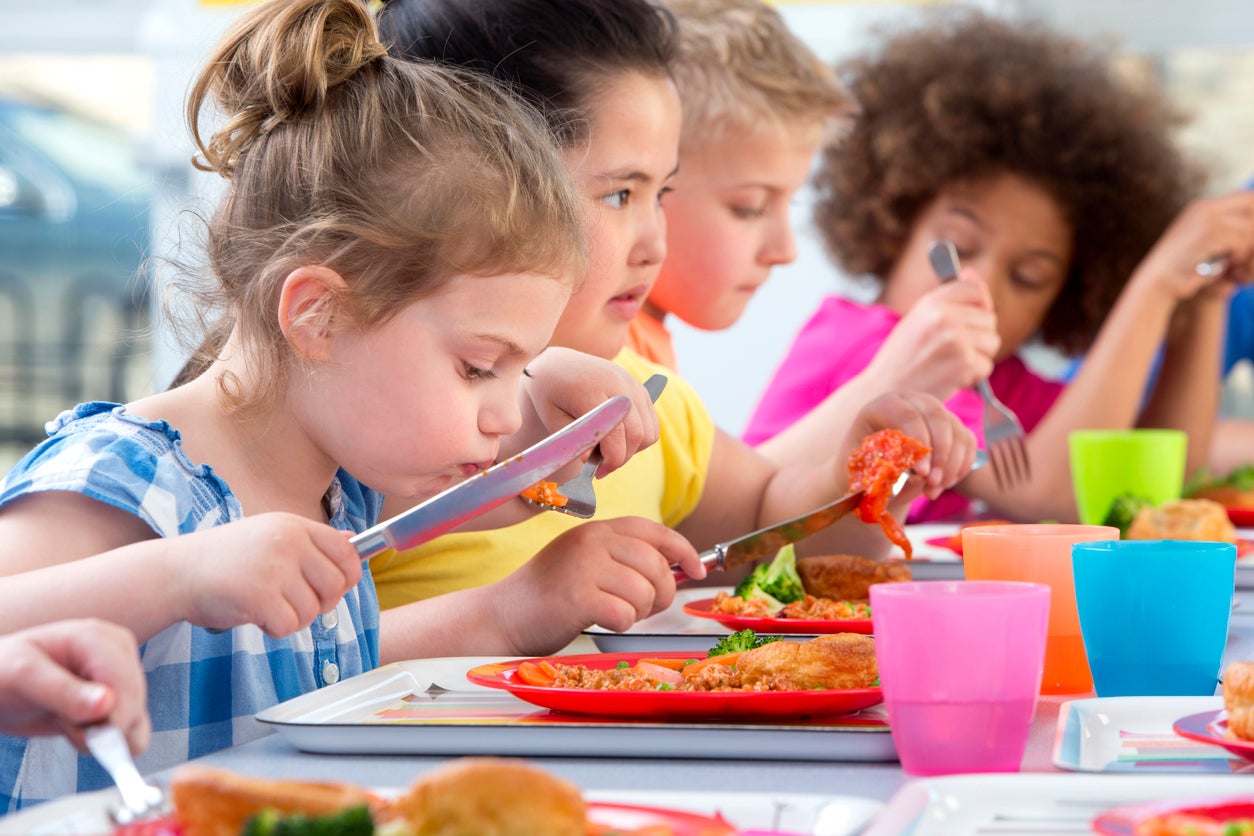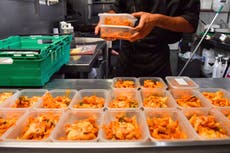Free school meal scheme for deprived pupils faces axe after funding cut
Pupils in schools in Newham receive free school meals from reception to Year 6

A free meal scheme for an East London school faces being axed after budget cuts by the government have left the existing drive “unaffordable”.
Newham Council has said its scheme, called the Eat for Free programme, feeds around 12,500 pupils in years 3 to 6 across its schools in its borough.
Youngsters in reception, year one and year two, as well as children whose families are eligible for certain benefits, are entitled to government-funded free school meals.
The council pays for this entitlement to be extended to all pupils in years three to six, regardless of their family income.
At least 90 per cent of children in its schools from years 3 to 6 are from low income households in the borough and so are eligible for its scheme.
But now it is proposing children, who don’t live in Newham but go to a school in the borough, to no longer take part in the scheme to help cut costs.
Newham Council has also suggested parents, who are not entitled to free school meals, to contribute between 60p and £1.42 towards the cost of the meals (worth £2.42) with the council covering the rest, as a way to keep the scheme running.
Councillor Sarah Ruiz, Newham Council’s Cabinet Member for Education and Children Social Care, said: “The unprecedented economic situation facing our borough – with government cuts and the devastating impact of Covid-19 compounding the financial challenge – leaves us with no choice but to look very carefully at how best to make the savings we need.
“We are committed to looking at all options for savings. These proposals would enable us to save around £1.9m from the £6m annual cost, while still enabling us to offer subsidised, healthy meals to every primary aged pupil in the borough.”
She added that infant school pupils and older children entitled to free school meals would continue to receive them.
People in Newham are being asked to give their say on the new proposals via an online survey on Newham Council’s website.
A spokeswoman for Ministry of Housing, Communities and Local Government told the Independent: "We continue to ensure councils have the resources they need to deliver effective services for their communities.
“Newham Council have received the £49 million of emergency funding this year and increased their core spending power by nearly £9 million. And Newham’s total school funding allocation next year is worth over £458 million, up from £245 million this year.
“The Government has provided them with the resources they need and we urge them to use it to support vulnerable people in their area.”
The proposals come after Unicef announced it would be helping children in Britain for the first time in its history by pledging a grant of £25,000 to the charity School Food Matters, which will use the money to supply thousands of breakfast boxes over the two-week Christmas school holidays to vulnerable children and families in Southwark, south London.
The Unicef grant was branded as a “political stunt” by Jacob Rees-Mogg, leader of the House of Commons, a claim that was later denied by the charity.
Anna Kettley, Unicef UK’s director of programmes and advocacy, said: “Unicef UK is responding to this unprecedented crisis and building on our 25 years’ experience of working on children’s rights in the UK with a one-off domestic response, launched in August, to provide support to vulnerable children and families around the country during this crisis period.
“In partnership with Sustain, the food and farming alliance, over £700k of Unicef UK funds is being granted to community groups around the country to support their vital work helping children and families at risk of food insecurity during the coronavirus pandemic.
“Unicef will continue to spend our international funding helping the world’s poorest children. We believe that every child is important and deserves to survive and thrive no matter where they are born.”
Join our commenting forum
Join thought-provoking conversations, follow other Independent readers and see their replies
Comments


Bookmark popover
Removed from bookmarks